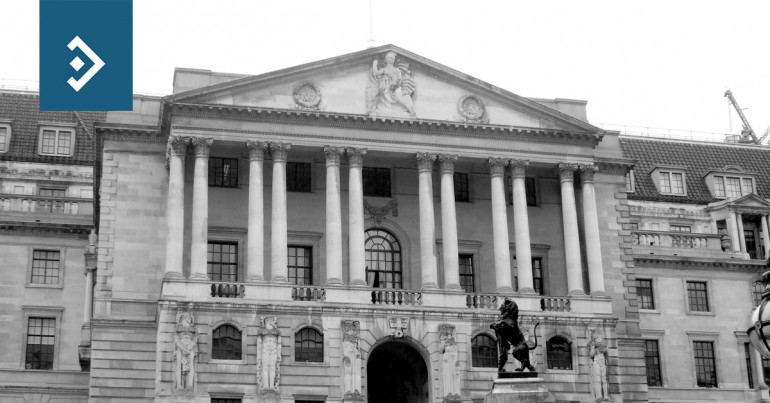
Rate cut fails to materialize
Morning mid-market rates – The majors
05th March: Highlights
- New BoE Governor hedges his bets
- U.S. economy’s underlying strength supports dollar
- Inflation continues to fall
Positive data predates virus concerns
Whether that support comes in the shape of an interest rate cut yesterday, tomorrow or next week is immaterial, the crisis appears to have moved beyond that point.
Both Boris Johnson and new BoE Governor Andrew Bailey acknowledge that the health of the nation both individually and in a corporate sense is the urgent priority.
There was a strong rumour yesterday about an imminent cut in short term rates, but nothing materialized. This is clearly driven by the surprise action taken to cut rates taken by the Federal Reserve. The fact that nothing happened in no way de-escalates the seriousness of the hit that GDP is going to take but merely illustrates the short-termism of the market.
The next MPC meeting is on March 26th and although it is by no means certain that the Governor (new or old) will wait until then to cut rates, there is no doubt at all that more accommodative monetary policy is coming.
Yesterday’s data releases, despite covering a period prior to the present heightened concerns over Coronavirus, were generally encouraging and the pound reacted positively. Services data remains in expansion despite concerns over the UK’s ability to penetrate the lucrative EU market post-Brexit. Output fell marginally from 53.3 in January to 53.2 in February.
UK regional airline Flybe went into administration late last night, seemingly the first corporate victim of Coronavirus. The truth is probably slightly different. Of course, numbers of passengers are drastically lower, but the regional airline was teetering on the brink for some time following its failure to secure funding from the Government.
The pound rallied yesterday versus both the dollar and euro. Against the dollar it reached a high of 1.2872 and closed at 1.2867. Similarly, versus the single currency, it reached 1.1562 and closed at 1.1553.
Considering your next transfer? Log in to compare live quotes today.
Greenback recovers poise
Taken to its natural conclusion, stripping back local areas that will be more or less affected, the individual economies which make up the entirety of global growth will each continue to contribute in the same percentage as before just all adding up to a smaller overall pot.
Whether this is a valid argument remains to be seen and I would say that it depends a lot more on the ability of the individual nations, particularly in the developed or G20 nations to act quickly, thoroughly and, to a certain extent with luck.
The extent of the outbreak so far in the U.S. is very difficult to ascertain so, again, a general stance is being taken that, eventually, each nation will be affected roughly the same, give or take.
What has given the U.S. an advantage, at least politically is the swift and decisive action of the Federal Reserve in not just cutting rates but acting in such a manner that they believe that they have done in enough in one action rather than piecemeal wait and see action that could precipitate a further cut down the road.
The initial reaction to the cut was mostly related to risk appetite with a degree of if the U.S. needs to cut by 50bp this early, how serious can it get? This drove the dollar, which was already significantly overbought into a correction which now looks to be coming to an end. Yesterday, the dollar index rose to a high of 97.60 and it closed at 97.37. The market remains jittery, but the dollar has remained above its yearly low and support is now between 96.80 and 97.20.
Italy taking the full brunt (and decisive action)
However, using the previous analogy, the starting point is a fair place to begin global comparisons and to then study what the authorities both financial and Governmental have in their toolbox.
From that angle, the Eurozone appears far less equipped than the U.S. and even possibly the UK. It remains to be seen just how much the regions support, from a Federal perspective will be offered in a practical sense to Italy where the epidemic is centred as far as Europe is concerned. It won’t take long for the source of infections to become impossible to determine and the focus will turn to Germany, France, Spain and then the rest.
Economically, there are a lot of wait and see policies being bandied around but the window of opportunity to act is closing rapidly. From the perspective of the spread that may have already happened.
Speculation about a recession is now almost becoming accepted reality with various commentators even speculating about just how long it will take for the region to recover. This uses generally accepted data to consider the implications but if it remains for, say, the rest of the year, the effect could be catastrophic and a rate cut or a series of cuts in an environment where rates are already negative will do nothing to ease suffering at all.#
Yesterday, the euro retraced some of its recent gains versus the dollar. It fell to a low of 1.1095, closing at 1.1137

About Alan Hill
Alan has been involved in the FX market for more than 25 years and brings a wealth of experience to his content. His knowledge has been gained while trading through some of the most volatile periods of recent history. His commentary relies on an understanding of past events and how they will affect future market performance.”



